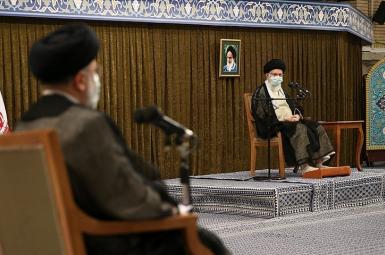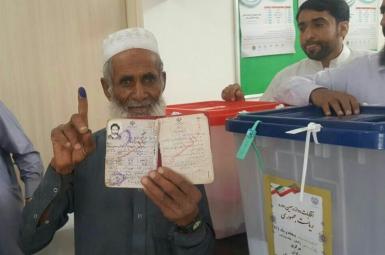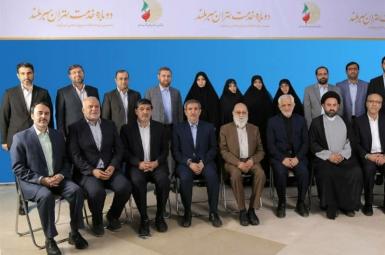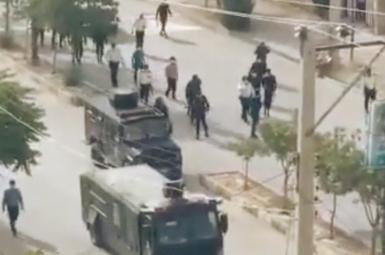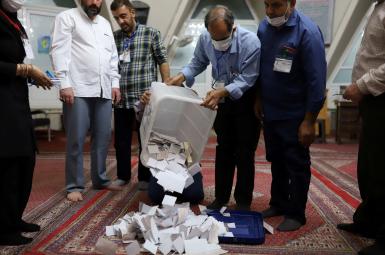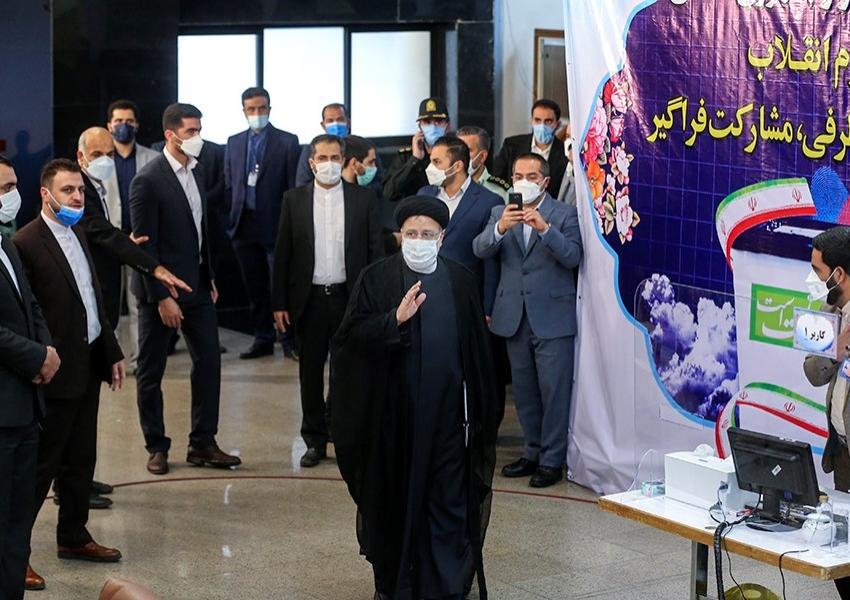
Short Of Plans, Iran Presidential Hopefuls Play Blame Game
With the watchdog Guardian Council due to announce May 27 those approved to run in Iran’s June 18 presidential election, almost none of Iran’s would-be candidates has offered plans or roadmaps for their presidency.
Some hopefuls have offered only general commitments to improve the economy. None has revealed anything about their likely team of ministers. Some campaigns − including those of Chief Justice Ebrahim Raeesi, vice-President Es’haq Jahangiri, and Saeed Mohammad, former head of the Revolutionary Guards’ construction arm Khatam ol-Anbia − have released posters highlighting supposed weaknesses of their rivals' teams.
Hardliner frontrunner Raeesi has reportedly sent a 7,000-page plan to 200 universities to be examined but he has not presented any version of it to the public.
Several academics and pundits have argued that candidates’ reticence to produce plans flies in the face of many problems facing Iran, including the impact of the Covid-19 pandemic, nuclear negotiations with world powers, continuing United States sanctions, rising inflation and unemployment, and looming water shortages.
Vahid Shaghaghi, an economist at Kharazmi University, Tehran, told Fararu news website Thursday that an absence of strategy and will to address problems – he cited the bankruptcy of pension funds, an ageing population, and the end of ‘age of oil’ – would make current shortcomings chronic. He suggested candidates should stop offering populist and general statements, and instead put forward practical ideas.
Shaghaghi called on presidential hopefuls to reveal details of their policies, priorities, financial strategies, and the economic implications of their plans. However, he noted that few candidates in previous elections had presented coherent plans. "Even what they said in the televised debates were nothing more than general statements and slogans,” he noted.
Economist Mehdi Pazouki bemoaned the tendency of political factions to blame each other for Iran’s problems rather than come up with solutions, in an interview with Fararu website this week.
Raeesi charged that former parliament speaker Ali Larijani, who has also registered to stand, and vice-president Es’haq Jahangiri both held responsibility for the country's current economic situation and could not be expected to bring any positive change if they are elected. Jahangiri, in turn, said after registering his candidacy, said that those who blamed previous governments for all the country's problems themselves lacked executive experience and had no solutions to offer.
Reformist analyst Mohammad Reza Javadi-Hesar told Fararu in an interview that most differences between candidates were over economic policies although some concerned foreign policy. Even though Iran’s oil sales have increased in recent months, economic prospects can hardly be detached from talks in Vienna working towards reviving Iran’s 2015 nuclear deal with world powers and lifting US sanctions – which could drag the Vienna talks and the nuclear program into the election.
US Secretary of State Antony Blinken and Saudi Foreign Minister Faisal bin Farhan al-Saud both said during the past week that key decisions in Iran were made by Ali Khamenei, the Supreme Leader, rather than by president.
